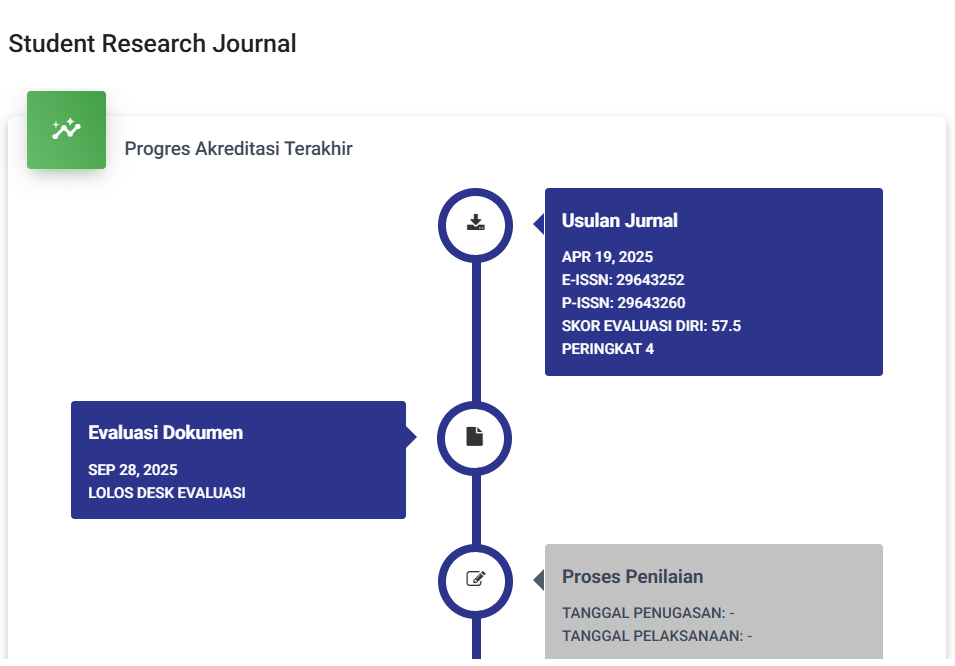Kompetensi Guru dan Ketepatan Pemilihan Metode Pembelajaran Berpengaruh Terhadap Hasil Belajar Siswa di SMK Untung Surapati Pasuruan
DOI:
https://doi.org/10.55606/srj-yappi.v3i1.1686Keywords:
Learning Outcomes, Learning Methods, Effective Learning, Teacher Competence, StudentsAbstract
This study aims to analyze the influence of teacher competence and the accuracy of teaching methods on student learning outcomes at SMK Untung Surapati Pasuruan. Teacher competence, including pedagogical, professional, social, and personal competencies, is considered crucial in creating an effective learning process. The accuracy of teaching methods is also examined to determine the extent to which selecting methods suitable to students' characteristics and lesson materials affects their understanding and engagement. This research employs a quantitative approach with a 2x2 factorial design, involving 67 students selected through proportional random sampling. Data were collected via questionnaires and tested for validity and reliability to ensure accuracy and consistency. The findings reveal that both teacher competence and teaching methods significantly influence student learning outcomes. The combination of these factors positively impacts the enhancement of students' cognitive, affective, and psychomotor aspects. Therefore, teachers are encouraged to continually improve their competence through training and further education and to choose teaching methods that align with students' needs to achieve optimal learning.
References
American Psychological Association. (2020). Publication manual of the American Psychological Association (7th ed.). https://doi.org/10.1037/0000165-000
Creswell, J. W., & Creswell, J. D. (2018). Research design: Qualitative, quantitative, and mixed methods approaches (5th ed.). SAGE Publications.
Denzin, N. K., & Lincoln, Y. S. (Eds.). (2018). The SAGE handbook of qualitative research (5th ed.). SAGE Publications.
Fraenkel, J. R., Wallen, N. E., & Hyun, H. H. (2019). How to design and evaluate research in education (10th ed.). McGraw-Hill Education.
Gay, L. R., Mills, G. E., & Airasian, P. W. (2015). Educational research: Competencies for analysis and applications (11th ed.). Pearson.
Kumar, R. (2018). Research methodology: A step-by-step guide for beginners (5th ed.). SAGE Publications.
Maxwell, J. A. (2013). Qualitative research design: An interactive approach (3rd ed.). SAGE Publications.
Miles, M. B., Huberman, A. M., & Saldaña, J. (2020). Qualitative data analysis: A methods sourcebook (4th ed.). SAGE Publications.
Neuman, W. L. (2014). Social research methods: Qualitative and quantitative approaches (7th ed.). Pearson.
Patton, M. Q. (2015). Qualitative research & evaluation methods: Integrating theory and practice (4th ed.). SAGE Publications.
Saldaña, J. (2021). The coding manual for qualitative researchers (4th ed.). SAGE Publications.
Sekaran, U., & Bougie, R. (2016). Research methods for business: A skill-building approach (7th ed.). John Wiley & Sons.
Silverman, D. (2020). Qualitative research (5th ed.). SAGE Publications.
Yin, R. K. (2018). Case study research and applications: Design and methods (6th ed.). SAGE Publications.
Zikmund, W. G., Babin, B. J., Carr, J. C., & Griffin, M. (2013). Business research methods (9th ed.). Cengage Learning.
Downloads
Published
How to Cite
Issue
Section
License
Copyright (c) 2025 Defri Maulana, Sugeng Pradikto

This work is licensed under a Creative Commons Attribution-ShareAlike 4.0 International License.








